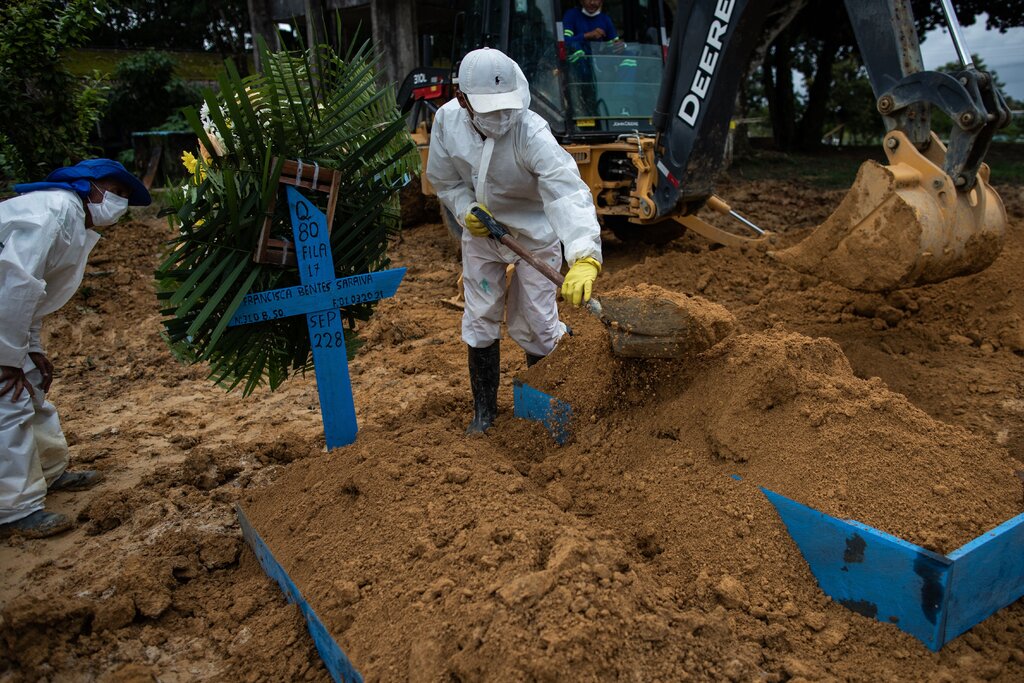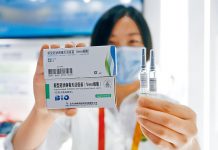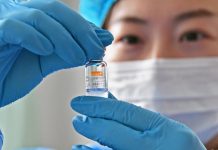
In just a matter of weeks, Scientists have also had their eye on a third concerning variant, which arose in Brazil, called P.1. Research has been slower on P.1 since its discovery in late December, leaving scientists unsure how much to worry.
“I’ve been holding my breath,” said Bronwyn MacInnis, an epidemiologist at the Broad Institute.
+ Ellen DeGeneres puts Beverly Hills mansion on the market for $52.5MILLION
Now, three studies offer a sobering history of P.1’s meteoric rise in the Amazonian city of Manaus. It most likely arose there in November and then fueled a surge in coronavirus cases. It came to dominate the city partly because of an increased contagiousness, the research found.
But it also gained the ability to infect some people who had immunity from previous bouts of Covid-19. And laboratory experiments suggest that P.1 could weaken the protective effect of a Chinese vaccine now in use in Brazil.
The studies have yet to be published in scientific journals. Their authors caution that findings on cells in laboratories do not always translate to the real world and that they’ve only begun to understand P.1’s behavior.
“The findings apply to Manaus, but I don’t know if they apply to other places,” said Nuno Faria, a virologist at Imperial College London who helped lead much of the new research.
But even with the mysteries that remain around P.1, experts say that it is a variant to take seriously. “It’s right to be worried about P.1, and this data gives us the reason why,” said William Hanage, an epidemiologist at the Harvard T.H. Chan School of Public Health.
P.1 is now spreading across the rest of Brazil and has been found in 24 other countries. In the United States, the Centers for Disease Control and Prevention has recorded six cases in five states: Alaska, Florida, Maryland, Minnesota and Oklahoma.
To reduce the risks of P.1 outbreaks and reinfections, Dr. Faria said it was important to double down on every measure we have to slow the spread of the coronavirus. Masks and social distancing can work against P.1. And vaccination can help drive down its transmission and protect those who do get infected from severe disease.
“The ultimate message is that you need to step up all the vaccination efforts as soon as possible,” he said. “You need to be one step ahead of the virus.”









